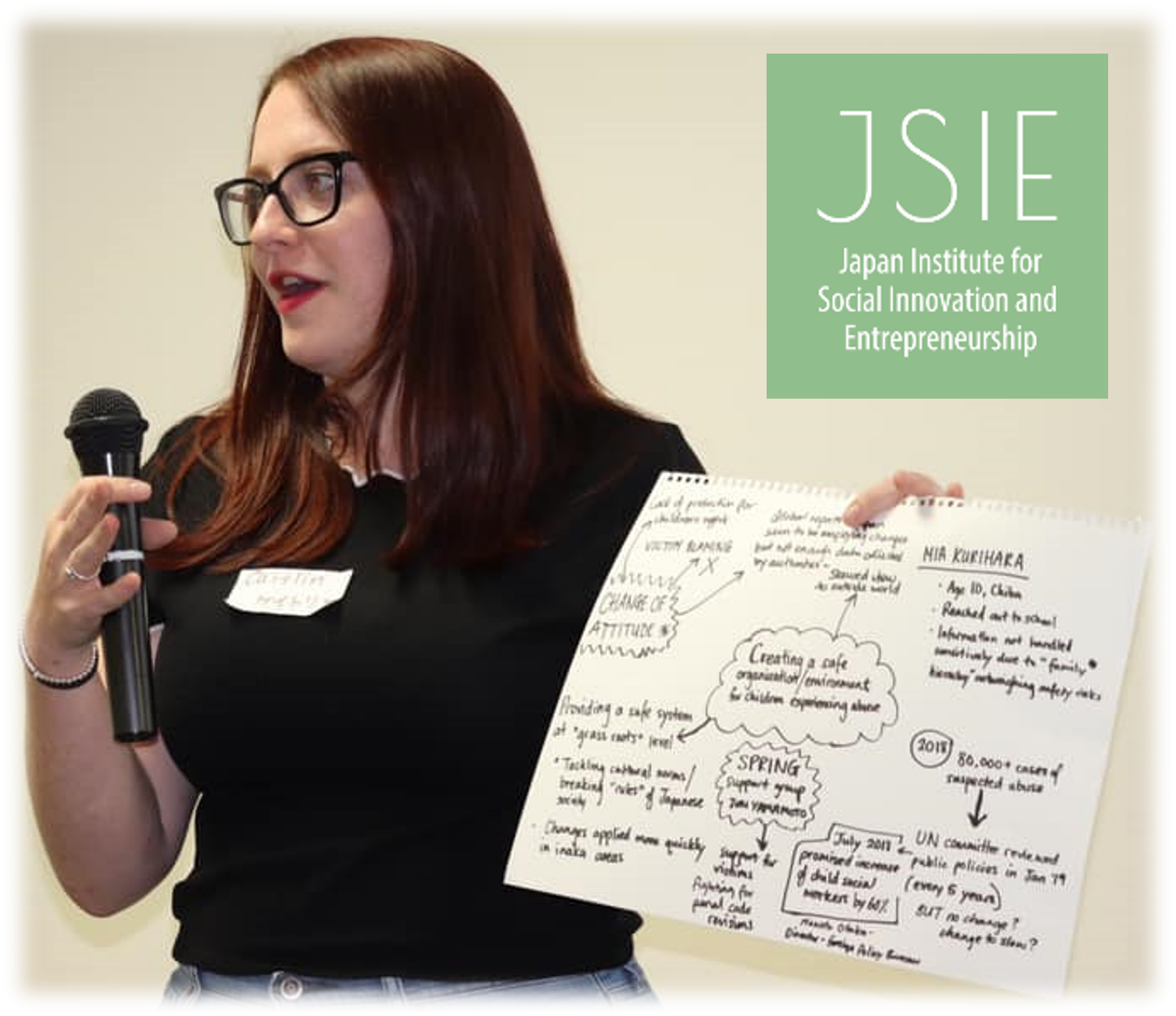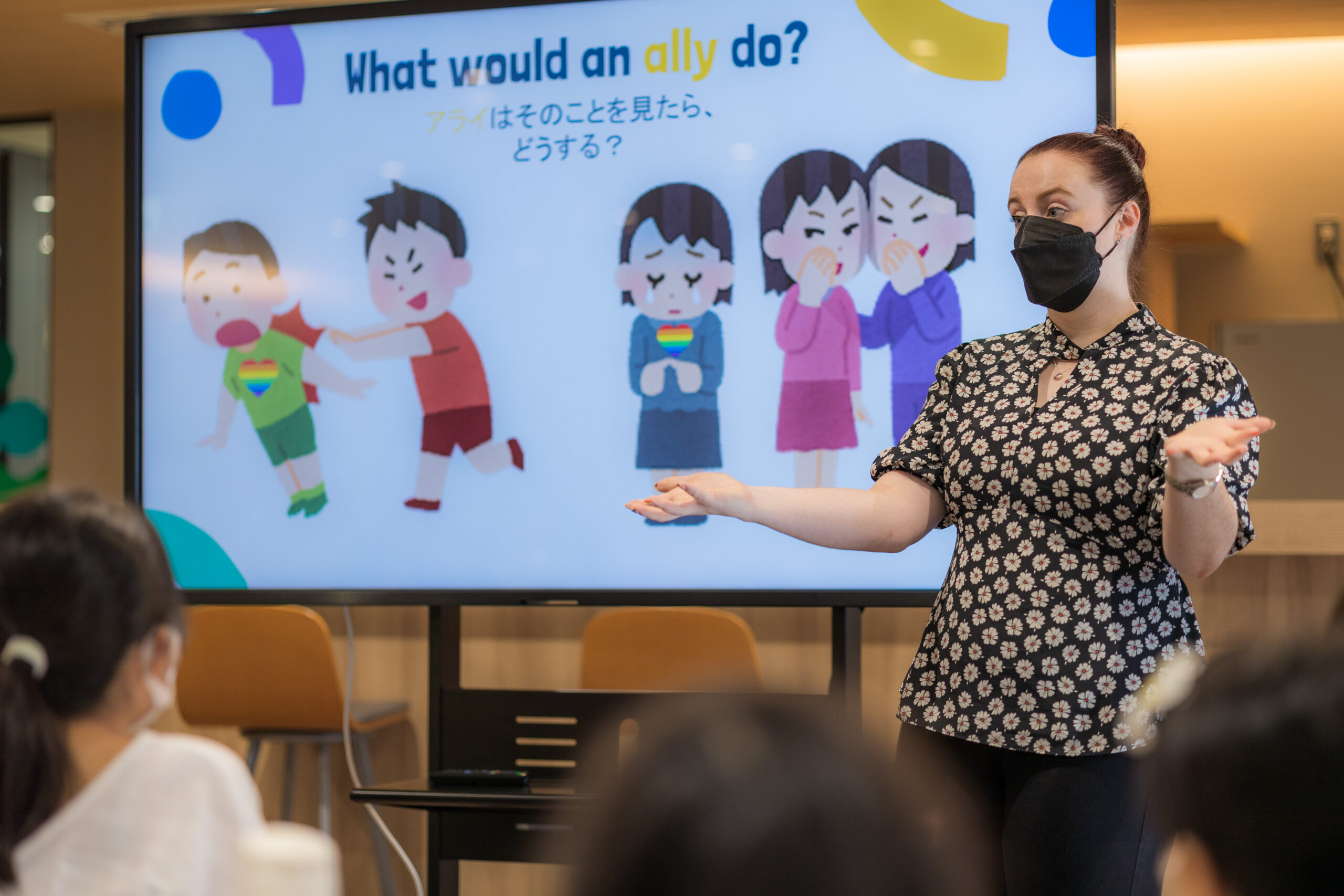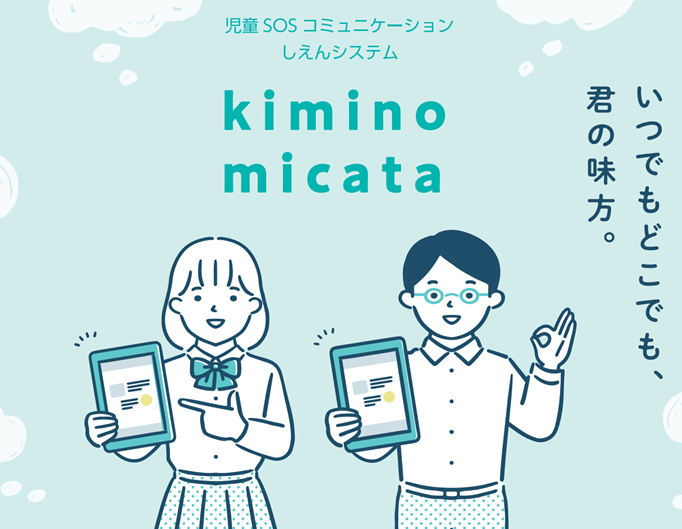Member? Please login
BBA 2023 Winner Profile: Diversity, Equity and Inclusion – Guardian

Written by Sterling Content
November 24, 2023
British Business Awards
A chance occurrence five years ago set the wheels in motion for the establishment of K.K. Guardian, which aims to aid the early detection of child abuse and bullying. Now, CEO and co-founder Caitlin Puzzar hopes recognition from the British Chamber of Commerce in Japan (BCCJ) will help the startup have a wider impact.
Guardian was awarded the British Business Award for Diversity, Equity and Inclusion at the BCCJ’s annual headliner event in November. Judges from the fields of government, business and culture praised the company’s child SOS communication support system “kimino micata” and diversity workshops.
Recognising need
The inspiration for kimino micata was sparked when Puzzar noticed a pile of child welfare questionnaires on the desk of a co-worker while she was working as an assistant language teacher in Kumamoto City. She had graduated Keele University with a BA in Criminology and a dissertation on the online exploitation of children, so was concerned about the handling of the children’s personal information.
“It wasn’t safe. Anyone could have seen it, or the papers could have been taken or photocopied,” she recalls.
Some enquiries about the paperwork revealed more details: schools were given a guideline on the key points to cover in the questionnaires but there was no standard in formatting, content or frequency of execution, hindering use of the data by boards of education. Furthermore, the same questionnaire was given to all children, meaning younger grades were often asked to bring their questionnaire home to receive help to fill it out, which could block reporting on abuse at home. At school, meanwhile, children filled out the forms in pencil, often in sight of their peers, and with all information available to their homeroom teacher.
“My main concern was that kids might be scared or ashamed to write the truth,” Puzzar explained.
Soon after, the case of Mia Kurihara, a 10-year-old girl who died at the hands of her abusive father in Chiba Prefecture in January 2019, was reported in the media. More than a year earlier, Kurihara had reported details of her abuse in a school welfare questionnaire, which was given to her father in 2018 after he demanded to see it.
 Shocked that Kurihara’s questionnaire was mishandled and the investigation of the case did not recognise the importance of safely handling personal data, Puzzar decided she wanted to help change the system.
Shocked that Kurihara’s questionnaire was mishandled and the investigation of the case did not recognise the importance of safely handling personal data, Puzzar decided she wanted to help change the system.
In May 2019, she participated in an event hosted by the Japan Institute for Social Innovation and Entrepreneurship (JSIE), where her pitch won the Best Idea Award. Through support from JSIE president (and now Guardian co-founder) Hiromi Murakami, she gained an angel investor and began working on her idea which would eventually become kimino micata.
Developing from the ground up
The closure of schools during 2020’s pandemic-induced lockdowns enabled Puzzar to accelerate her efforts. With permission to work on the project from home, she and Murakami developed the app with engineers using trial and error.
The result was a system allowing children to communicate their issues via an app monitored by dedicated “micata teams,” typically comprising the school’s head teacher, vice head teacher and school nurse. However, homeroom teachers can also access their students’ answers unless it concerns their relationship with the students.
“We wanted to provide a considerate way for students to bypass the hurdle [of their homeroom teacher] should they need to,” explained Puzzar, pointing out that standard school welfare questionnaires are handled only by homeroom teachers.
“The system gives students confidence and is designed both to protect child human rights and educate users on the importance of children’s consent,” a concept often misunderstood by teachers, which has resulted in the outing of students, she added. Even the moniker kimino micata (meaning “your ally”) was chosen to encourage children to comfortably raise their voices.
“It’s designed to be a safe space for the children to be able to report their issues. From that reporting, it will produce alerts,” she said.
Gathering evidence
On completion of a basic version, the app was piloted at two elementary schools and one junior high school. This was followed by two years of extensive trials, completed in July 2022.
“Those two years were invaluable for learning things that the kids needed,” she said, adding that the priority was to make questions child-friendly rather than “designed to tick boxes for adults.”
In August 2022, Puzzar moved to Kyoto and began work on the app full-time, incorporating Guardian in December.
Eight schools (six elementary, one junior high and one senior high) are now using kimino micata. In tandem, Guardian delivers diversity workshops in English designed to empower children to be allies or active bystanders.
“Parents and teachers can view the topic as heavy or too much for children, but children can understand if things are explained simply. Through education, children can be aware of issues at a foundation level,” said Puzzar. She hopes the workshops can reduce cases of bullying and increase reporting of bullying, neglect or abuse.

Looking ahead
Guardian signed a contract with Kumamoto City in September to collaborate on its Children’s Consultation Project. The company will add a function to kimino micata for the city so children can choose to send their SOS message to an independent children’s consultation centre. If they choose this option, representatives from the centre will contact and consult with them directly, without disclosing the children’s private information.
April also saw the launch of Japan’s Children and Families Agency (Kodomo Katei Cho), the government’s headquarters for coordinating child-related policies, so Puzzar is hopeful it will spur municipalities to do more to protect the welfare of children.
“We have a market opening, and our competitors focus on making things easier for teachers so we have an opportunity with our child-centric offering,” she said.
Speaking of the BBA win, Puzzar said the accolade will enhance people’s trust in Guardian due to the significance of the BCCJ and prestige of the awards. “Municipalities will have more confidence in us because we’ve been recognised by the BCCJ, which can only benefit us in the future,” she said.







